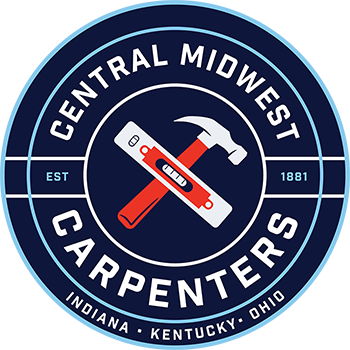NOTICIAS
HOT ITEM


Recent News
 2024 Indiana Kentucky Graduate Speaker – Kyle Harveymarzo 28, 2025 - 1:49 pm
2024 Indiana Kentucky Graduate Speaker – Kyle Harveymarzo 28, 2025 - 1:49 pm Military Outreach Makes Big Impactmarzo 24, 2025 - 3:29 pm
Military Outreach Makes Big Impactmarzo 24, 2025 - 3:29 pm 2025 Central Midwest Sisterhood Updatemarzo 3, 2025 - 5:13 pm
2025 Central Midwest Sisterhood Updatemarzo 3, 2025 - 5:13 pm Craft Spotlight – Justin Rogersfebrero 26, 2025 - 4:44 pm
Craft Spotlight – Justin Rogersfebrero 26, 2025 - 4:44 pm Ohio’s Newest Journey-Level Carpenters: Class of 2025febrero 25, 2025 - 12:55 pm
Ohio’s Newest Journey-Level Carpenters: Class of 2025febrero 25, 2025 - 12:55 pm Craft Spotlight – Brandon Huffmanfebrero 19, 2025 - 3:26 pm
Craft Spotlight – Brandon Huffmanfebrero 19, 2025 - 3:26 pm Craft Spotlight – Ron Heimelfebrero 5, 2025 - 5:14 pm
Craft Spotlight – Ron Heimelfebrero 5, 2025 - 5:14 pm


How to thank this veteran (and others): Support prevailing wage
/0 Comentarios/en Diversity, News /por IKORCCGilbert Charles, of Pinckney, is a U.S. Army veteran who served in the 1980s and moved to the skilled trades. His son, Matt, has followed in his father’s footsteps as a veteran and now as an apprentice learning how to become an electrician.
By Gilbert Charles
As we near Veterans Day, we will hear from many political leaders how grateful they are for our service. Some will express concern about veterans who return home and their opportunity to find a good job to support their families.
As a U.S. Army vet who served in the 1980s — and as the father of an Army veteran who served in Afghanistan — I always appreciate those thoughts. But I’m also concerned about efforts in the Legislature that would cut the pay of many Michigan veterans working in the construction industry.
I returned to Michigan after my service, and looked around for a good job, one that would let me build on my training, provide fairly for my family, offer decent health care benefits and a path to retirement. I found that job, training in an apprentice program and becoming a journeyman electrician as a member of IBEW Local 252. A portion of my paycheck each week goes to the apprenticeship program, to ensure those veterans and others who come after me get the training they need to do their job well and safely.
That turns out to have been a good investment. Now my son Matt is following in my footsteps. He’s in the Local 252 IBEW-NECA apprenticeship program, earning while he learns, at no cost to taxpayers. We know a lot of veterans in the industry. A recent report by the State of Michigan showed that about 9 percent of veterans are in the construction industry, compared with about 6 percent of state workers overall. And many were attracted to the fair pay and good training made possible by the state’s prevailing wage laws.
It’s exciting to see my son work in major, complex construction jobs at the University of Michigan — jobs that demand the skills I’ve gained over the years. But it’s not clear that good paying jobs in the skilled trades professions will be available to future vets.
A handful of politically powerful special interests want to cut the pay and benefits going to skilled trades workers by eliminating prevailing wage policies, even though research shows taxpayers won’t save a dime.
Prevailing wage policies say that taxpayer-supported jobs have to pay the going rate of pay in the region — usually the union-negotiated wage. Any company can bid, union or nonunion. But they have to pay a fair wage rate. It helps keep out-of-state companies from coming in with cheaper, less skilled workers to do the minimally acceptable job that meets minimum standards.
It’s in the state’s best interest to attract veterans such as Matt into the skilled trades, where there is a shortage of workers today. But without prevailing wage policies, the job will be a lot less attractive — in fact, many skilled-trades workers, including veterans, won’t enter the profession, or will go to another state. (Other Midwest states have prevailing wage policies, it’s mostly low-paying states in the South that don’t). Union apprenticeship programs will also disappear, and taxpayers will have to pay for those programs.
So this November, don’t just thank Matt and I for our service. We know you appreciate that. Take another step. Tell your lawmakers to support good jobs for veterans by supporting prevailing wage laws. That way Michigan veterans can return confident they will be able to get good training and support their families by taking jobs in the skilled trades
Attacks On Prevailing Wage Laws Disproportionally Hurt Veterans
/0 Comentarios/en Diversity, News /por IKORCCMedia Contact: Doug Gordon (202) 494-5141 |doug@dsgstrategies.com
Report Finds That As Hundreds Of Thousands Of Iraq and Afghanistan Veterans Enter Work Force, Prevailing Wage Greatly Improves Economic Outcomes For Veterans
A first-of-its-kind study released on May 10, 2016 finds that prevailing wage greatly improves economic outcomes for veterans and that growing attacks on prevailing wage at the state level will disproportionally hurt the hundreds of thousands post-9/11 veterans who are returning to the workforce.
Exploring of the economic impact of state prevailing wage laws on veterans in the construction industry, the study was commissioned by VoteVets, the largest progressive group of veterans in America. The study was conducted by Frank Manzo IV of the Illinois Economic Policy Institute, University of Illinois at Urbana-Champaign Professor Robert Bruno, and Colorado State University-Pueblo Economist, Dr. Kevin Duncan.
“The data clearly shows that veterans work in the skilled construction trades at significantly higher rates than non-veterans,” said Manzo. “The difference is even more pronounced in states with average or strong prevailing wage policies–so any changes in these laws will have an outsized impact on those who have served in the military.”
Click Here to Download the Full Report.
Click Here to Download a Summary of the Report.
With construction now the second-fastest growing industry in America, the military is helping active duty service personnel prepare for civilian careers through the US Military Apprenticeship Program (USMAP)—which now accounts for almost 22% of all registered apprenticeships in the country.
The study found that prevailing wage laws not only encourage more veterans to put these skills to work in their communities, but that they pull thousands of veterans out of poverty each year in the process.
Utilizing industry standard economic modeling, it also found that if each of the states with average or strong prevailing wage laws enacted repeals, 24,000 veterans would lose their health insurance, another 65,000 would leave the construction workforce, veteran construction workers would see their incomes drop by $3.1 billion per year, and nearly 8,000 veteran owned construction businesses would shut their doors.
With prevailing wage laws coming under attack in at least 11 states over the past two years, VoteVets has announced that it will be begin airing ads to educate the public about the importance of these standards, and hold lawmakers accountable. The campaign will begin in Illinois, where Governor Bruce Rauner had proposed repeal at the local level as part of his “Turnaround Agenda.”
“It is appalling to see so many politicians who profess to ‘support veterans’ actively fighting to cut their wages,” said VoteVets Chairman Jon Soltz. “Prevailing wage laws help more veterans translate battlefield skills into middle class careers in their communities. With too many post 9/11 veterans struggling to find work, we need to be strengthening these laws, not weakening them.”
ICRA program continues to make hospital construction safer
/0 Comentarios/en News /por IKORCCThe Infection Control Risk Assessment (ICRA) Program provides patient-focused training for Carpenters and other trades working in hospitals, medical facilities or other occupied spaces. Workers who attend the training learn about containing pathogens, controlling airflow and recognizing and properly disposing of hazardous materials. By learning how to keep hospital construction sites safe and infection-free, attendees gain skills that set them apart from the rest of the field.
We are proud to work with other trades to ensure safety across all spectrums of hospital construction and appreciate their ongoing commitment to patient and staff safety. The dedication of other crafts to excellence in healthcare construction is demonstrated by sending 3,467 of their members through the ICRA 8-Hour Awareness Training.
Do you want to ensure infection control best practices are used by construction workers in upcoming renovation or construction projects at your healthcare facility? Contact Brad Murphy at 317-605-1386 or bmurphy@ikorcc.com for a list of contractors in your area that use ICRA-trained staff.
Construction ICRA Best Practices is an innovative program that provides patient-focused training for Carpenters and other trades working in hospitals, medical facilities or other occupied spaces. This set of best practices helps prevent the spread of disease and infection during construction at healthcare facilities. ICRA instructors also offer training opportunities to healthcare facility staff.
Agreement between U.S. Department of Labor, Oregon Bureau of Labor provides education, enforcement to protect workers from missclassification
/0 Comentarios/en News /por IKORCCParticipants: U.S. Department of Labor’s Wage and Hour Division
Oregon Bureau of Labor and Industries
Partnership description: The division and bureau signed a three-year Memorandum of Understanding intended to protect employees’ rights by preventing their misclassification as independent contractors or other non-employee statuses. The two agencies will provide clear, accurate and easy-to-access outreach to employers, employees, and other stakeholders; share resources and enhance enforcement by conducting coordinated investigations and sharing information consistent with applicable law.
Background: The division is working with the IRS and 28 other states to combat employee misclassification and to ensure that workers get the wages, benefits, and protections to which they are entitled. Mislabeling employees as independent contractors can deny them of basic rights such as minimum wage, overtime and a host of other benefits. Misclassification also reduces federal and state tax revenues, and prevents contributions to state unemployment insurance and workers’ compensation funds.
More information on misclassification and the effort are available at http://www.dol.gov/misclassification/.
Quotes: “The Wage and Hour Division continues to attack this problem head on with a combination of a robust education and outreach campaign and a nationwide, data-driven, strategic enforcement across industries. Our goal is always to strive toward workplaces with decreased misclassification, increased compliance, and more workers receiving a fair day’s pay for a fair day’s work.”
David Weil, U.S. Department of Labor Wage and Hour Division Administrator
Quote: “When corporations misclassify their workforce, they make it much more difficult for workers facing wage theft, civil rights abuse or other unfair treatment on the job. This agreement will create a new tool to help protect the rights of Oregon workers cheated on the job.”
Brad Avakian, Oregon Bureau of Labor and Industries Commissioner
Source: WHD News Brief, 04/04/2016
Photo: Matt Brown
2016 IKORCC Scholarship Winners
/0 Comentarios/en News /por IKORCCCongratulations to our 40 2016 scholarship recipients! Each student received a $1,000 scholarship toward tuition, room and board, or books.
Twenty of the scholarships were awarded on high school grade point average (60%) and SAT or ACT scores (40%). The other twenty were selected by random in a drawing. This year’s applicants were evaluated by a team of college administrates at the Owens Community College in Perrysburg, Ohio.
Recipients are sons, daughters, and dependent children of members of the Indiana/Kentucky/Ohio Regional Council of Carpenters and Millwrights. The parent or guardian must be a member in good standing of IKORCC for at least one year. The son, daughter, or dependent child must be a high school graduating senior or be attending a college, university or trade school as a full-time student.
To apply for a 2017 scholarship, click here.